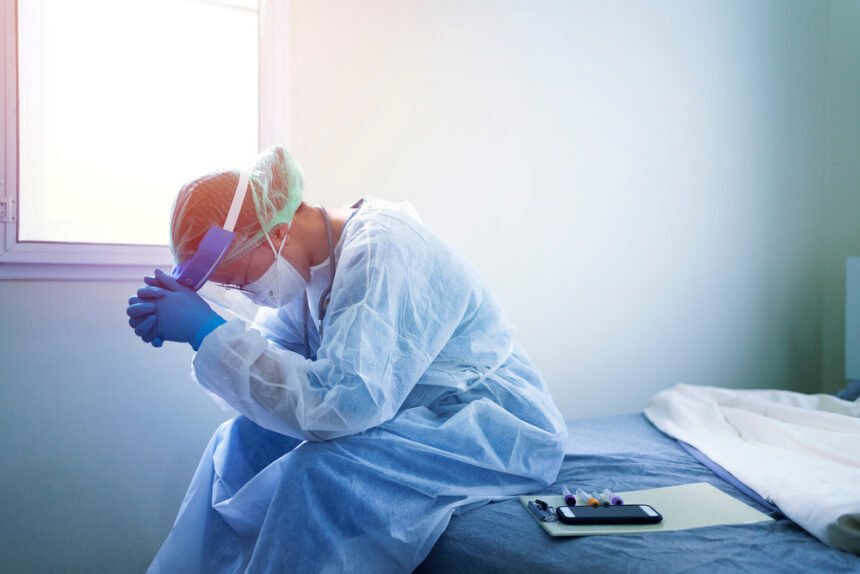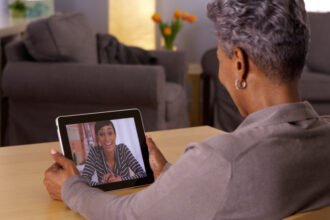Coronavirus is incredibly dangerous and infectious, but some people are at greater risk. Specifically, anyone who is immunocompromised has a much higher chance of contracting and being unable to defend against COVID-19.
With this in mind, people who are older or those that have underlying medical conditions like a certified 9/11 cancer currently face the highest risk. If you fall into one of these categories, you must be particularly careful about your interactions with others.
While being immunocompromised places you in danger, you can improve your safety with a few important precautionary measures. You can survive this pandemic, but you cannot take your health lightly.
To help you avoid coronavirus, we’ll outline a few essential tips for keeping you safe below.
Follow Standard Safety Precautions
To start, you should follow all standard safety precautions for COVID-19.
This includes measures like keeping a six-foot distance from others, wearing a protective face mask and frequently washing your hands. You should also avoid commonly-touched surfaces, refrain from gathering, and don’t share personal belongings with others.
You’ve likely heard of these safety measures before and there’s a good reason for this. The precautions outlined above are incredibly effective at limiting the spread of coronavirus and preventing you from contracting it.
If you are immunocompromised, you cannot risk any exposure to coronavirus. Your goal is to eliminate any risk of encountering the virus and this begins with the basic safety guidelines for infectious diseases. You can order protective masks and other PPE easily online.
Avoid Unnecessary Risks
Another critical point is to avoid unnecessary risks during the current pandemic.
Many activities that were safe before the current pandemic are now hazardous. Your safest option is to stay home as much as possible because your house is an environment you can control and keep safe.
Going out in public is a major risk because you may encounter someone who has coronavirus. Worse yet, they may be asymptomatic and have no idea they are sick.
Because of this, you need to avoid partaking in any behavior that could potentially expose you to COVID-19. Some of the most problematic activities right now include social gatherings, sharing personal belongings, riding public transportation, and traveling.
Even if you’re doing your best to limit your exposure, not everyone else is taking coronavirus seriously. Many people are not wearing masks and gathering in public despite the obvious safety concerns.
You must avoid risks because you can’t trust others to take adequate safety precautions to avoid spreading COVID-19. Remember this and think carefully about any activities you choose to participate in, especially if they take you out of the house.
Stock Up
Stocking up on necessities is another smart strategy for those at higher risk.
In particular, the immunocompromised will want to have a healthy supply of medication and groceries.
Being immunocompromised, you may have current health complications that require medication. Alternatively, you may take medication to prevent issues. This need won’t go away with the current pandemic, but retrieving your medication can be dangerous.
It is not smart to stop taking your necessary medications to avoid going out in public. You likely need your medications to stay healthy and going without may only make matters worse.
You’re much safer stocking up on several month’s worth of prescriptions. This will eliminate how often you need to leave the house.
In a similar regard, you should also stock up on groceries. Namely, canned goods and other non-perishables work best so you have a viable stock at all times.
Your goal should be to stock up on anything you may need in the next few months. You want to create no need to leave the house because you are safest when you are isolated.
If you run out supplies, try to get a trusted friend or family member to collect them for you. It is much safer for someone who is not immunocompromised to take safety precautions and shop for you.
Consider everything you’ll need to stay at home and make lists. Find someone to purchase the goods for you or try to shop at unbusy locations and times.
Communicate With Your Doctor
Lastly, you should keep an open line of communication with your doctor.
Being immunocompromised, you likely see your doctor often. It’s important to keep tabs on your condition and see if anything has changed.
The coronavirus pandemic has created a unique scenario unlike any we’ve seen before. Because of this, it isn’t a simple matter for you to seek the healthcare you need.
Many people who are immunocompromised are afraid to seek treatment due to the high likelihood of coronavirus being in hospitals. While many facilities try to keep a sterile environment, being in the vicinity of the virus is dangerous enough for many to stay away.
Unfortunately, not keeping in touch with your doctor only places you in greater danger. Your doctor will know what your best course of action during the current pandemic is and what you should be doing to stay safe.
Furthermore, speaking with your doctor can provide you with the peace of mind needed to persevere through the pandemic. It’s easy to have many concerns and questions and your doctor can address them all.
This also allows you to quickly tackle any concerns related to having coronavirus. Your doctor can help distinguish if you have coronavirus or if your symptoms are related to your underlying conditions.
Your doctor is one of your best friends during this current medical crisis. Stay in touch with them via frequent voice calls or video chats to get the attention you need!
Closing Thoughts
Immunocompromisation is incredibly difficult, especially during the coronavirus pandemic. Your risk of contracting and facing serious complications as a result of COVID-19 infection is much higher than someone with a healthy immune system.
Because of this, you must work extra hard to avoid getting sick. You can do this by following the standard safety precautions for coronavirus, avoiding unnecessary risks, stocking up on the necessities, and maintaining communication with your doctor.
You’ve been through a lot and you don’t deserve to suffer from the threat of coronavirus. That said, you must keep yourself safe and this starts with being smart and careful!










